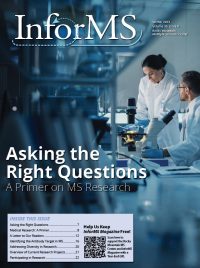In preparing this issue, we asked MS Center Neurologists what they think are the biggest new developments in MS Research. Here are thier replies.
 There continues to be a lot of progress in the field of MS although progressive MS remains a mystery. However, new ways to measure it (SELs [slowly evolving lesions], PRLs [paramagnetic rim lesions], PRO [patient reported outcomes], Apps) and treat it (BTK inhibitors, stem cell transplants, CAR-T, anti-CD40 ligand) are being explored. — Dr. Enrique Alvarez
There continues to be a lot of progress in the field of MS although progressive MS remains a mystery. However, new ways to measure it (SELs [slowly evolving lesions], PRLs [paramagnetic rim lesions], PRO [patient reported outcomes], Apps) and treat it (BTK inhibitors, stem cell transplants, CAR-T, anti-CD40 ligand) are being explored. — Dr. Enrique Alvarez
 The lack of approved therapies for autoimmune encephalitis had led to substantial variability in how the condition is treated. There are new, exciting clinical trials that have been launched over the last year in NMDAR encephalitis (NCT04372615, NCT02073279) and LGI1 autoimmune encephalitis (NCT02073279, NCT04875975) using newer immunotherapies. We’re actively recruiting for some of these trials the University of Colorado and it’s exciting to be part of this new and evolving field as we change the treatment paradigm that will hopefully lead to better long-term outcomes for patients. — Dr. Amanda Piquet
The lack of approved therapies for autoimmune encephalitis had led to substantial variability in how the condition is treated. There are new, exciting clinical trials that have been launched over the last year in NMDAR encephalitis (NCT04372615, NCT02073279) and LGI1 autoimmune encephalitis (NCT02073279, NCT04875975) using newer immunotherapies. We’re actively recruiting for some of these trials the University of Colorado and it’s exciting to be part of this new and evolving field as we change the treatment paradigm that will hopefully lead to better long-term outcomes for patients. — Dr. Amanda Piquet
 A research team including our colleagues Greg Owens and Jeff Bennett cloned specific disease-causing antibodies targeting a myelin protein PLP1 from the spinal fluid of patients with multiple sclerosis. These antibodies were present in 58% of MS CSF samples but in 0% of control CSF samples. These findings will hopefully bring closer the day when we finally have a foolproof way of diagnosing MS. — Dr. Robert Gross
A research team including our colleagues Greg Owens and Jeff Bennett cloned specific disease-causing antibodies targeting a myelin protein PLP1 from the spinal fluid of patients with multiple sclerosis. These antibodies were present in 58% of MS CSF samples but in 0% of control CSF samples. These findings will hopefully bring closer the day when we finally have a foolproof way of diagnosing MS. — Dr. Robert Gross
 In the last year we’ve taken important steps to understand how to counsel first-degree relatives of people with MS about their own risk of developing MS. Collaboratively with data from COMPASS (Colorado Center for Personalized Medicine) we’ve been able to look for genetic differences among first degree relatives that are similar to genetic differences seen in people with MS. This data, combined with other known risk factors and MRI scans, will hopefully provide us with a meaningful way of quantifying risk. — Dr. Teri Schreiner
In the last year we’ve taken important steps to understand how to counsel first-degree relatives of people with MS about their own risk of developing MS. Collaboratively with data from COMPASS (Colorado Center for Personalized Medicine) we’ve been able to look for genetic differences among first degree relatives that are similar to genetic differences seen in people with MS. This data, combined with other known risk factors and MRI scans, will hopefully provide us with a meaningful way of quantifying risk. — Dr. Teri Schreiner
 One of the most incredible aspects of MS research is the significant differences and multifaceted nature of the research. There are studies looking at curing MS, remyelination, preventing MS from occurring in the first place, pregnancy and postpartum periods in MS, menopause, cognition, strength, integration of technology into disease monitoring, biomarkers — and the list goes on. This not only addresses the long term approach of MS with treatment and cures, but also the daily struggles that MS patients face and the desire to improve general quality of life. — Dr. Anna Shah
One of the most incredible aspects of MS research is the significant differences and multifaceted nature of the research. There are studies looking at curing MS, remyelination, preventing MS from occurring in the first place, pregnancy and postpartum periods in MS, menopause, cognition, strength, integration of technology into disease monitoring, biomarkers — and the list goes on. This not only addresses the long term approach of MS with treatment and cures, but also the daily struggles that MS patients face and the desire to improve general quality of life. — Dr. Anna Shah
 Dr. Bennett’s recent paper on pathogenic anti-myelin antibodies in the spinal fluid of persons with multiple sclerosis is another milestone – after this can become commercially available, this would also greatly help with diagnosis of persons with multiple sclerosis. — Dr. Ryan Kammeyer
Dr. Bennett’s recent paper on pathogenic anti-myelin antibodies in the spinal fluid of persons with multiple sclerosis is another milestone – after this can become commercially available, this would also greatly help with diagnosis of persons with multiple sclerosis. — Dr. Ryan Kammeyer
 In the past 12 months, two clinical trials exploring disease-modifying therapy use for radiologically isolated syndrome — in which patients have MRI lesions consistent with multiple sclerosis but no attributable symptoms — have been completed. The results of the ARISE and TERIS trials will help us get patients on treatment at the earliest opportunity, reducing the risk of relapses and development of long-term disability. — Dr. Andrew Wolf
In the past 12 months, two clinical trials exploring disease-modifying therapy use for radiologically isolated syndrome — in which patients have MRI lesions consistent with multiple sclerosis but no attributable symptoms — have been completed. The results of the ARISE and TERIS trials will help us get patients on treatment at the earliest opportunity, reducing the risk of relapses and development of long-term disability. — Dr. Andrew Wolf






